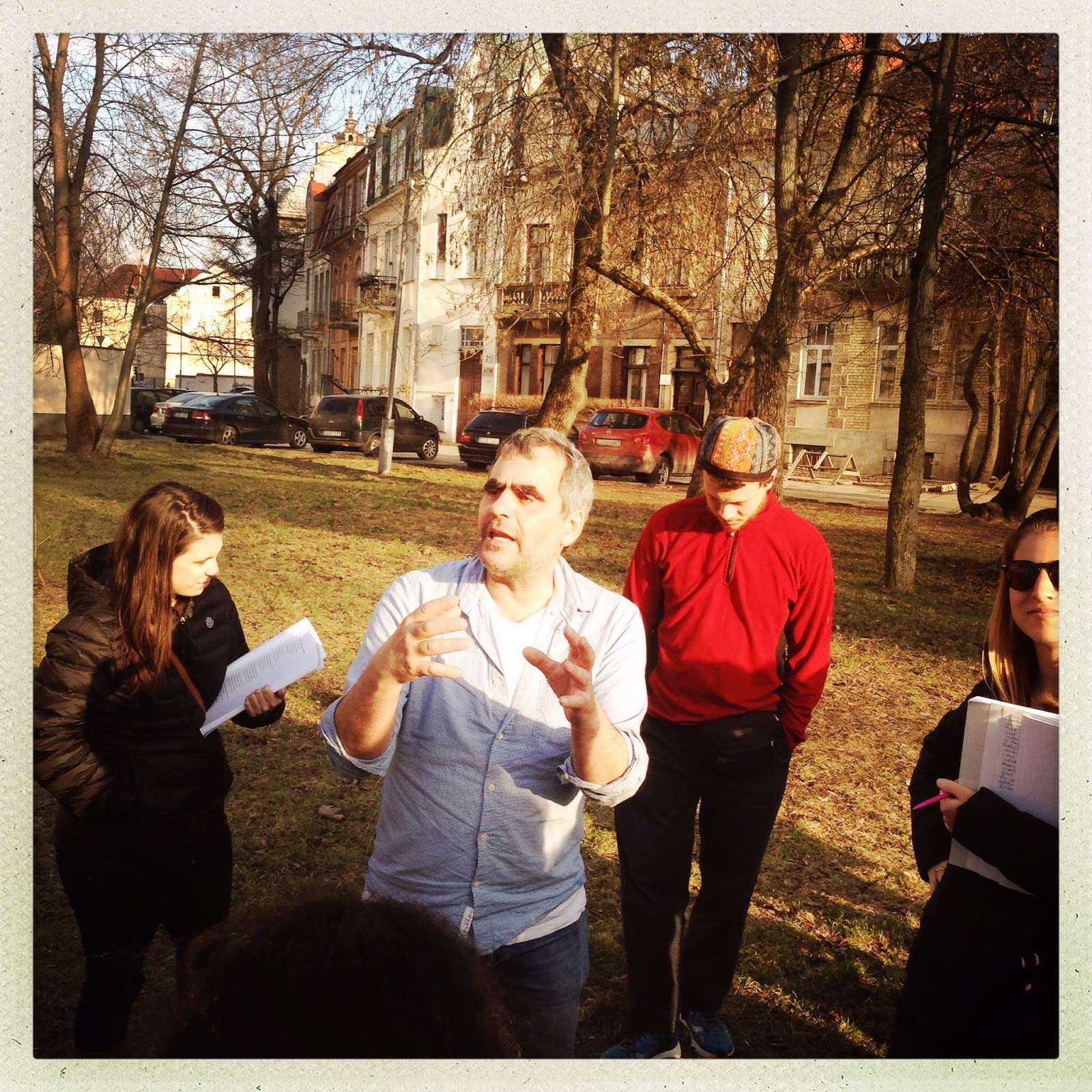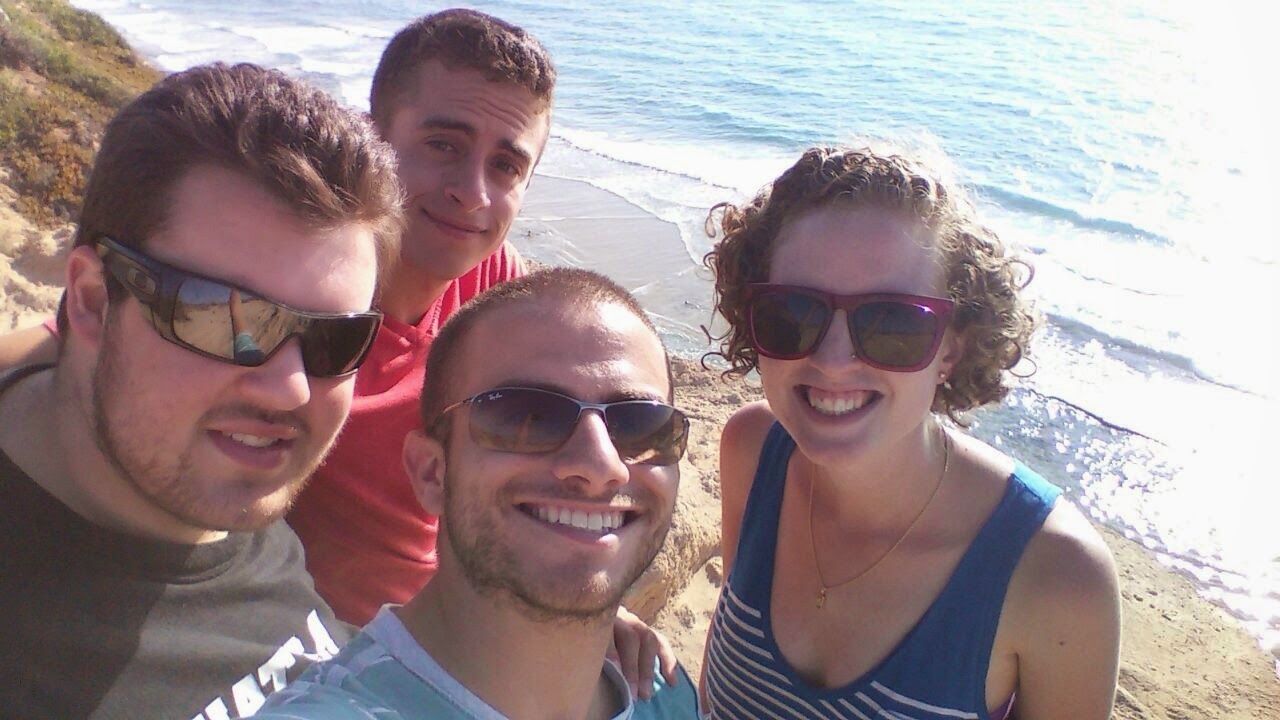I have just returned from a trip to Lithuania, a place I certainly did not expect to travel to when I left for Jerusalem this year. Lithuania had fallen into the category of "Eastern European countries (that used to have Jewish populations) that I know little about," and when traveling to Israel for the year I was distracted by all the Hebrew that I needed to learn. When one of my favorite professors announced that he was leading a trip there, I jumped at the opportunity.
At the beginning of this year, I heard that Vilnius (Vilna in Yiddish) was called "Jerusalem of Lithuania" in the 1920s. What chutzpah, I thought, for a place that wasn't Jerusalem to name itself Jerusalem! There is only one Jerusalem, and it is in Israel, not eastern Europe.
But learning about Vilna in the 1920s told a different story. Of the 240,000 Jews in Lithuania, 100,000 lived in Vilna, making up 40% of the city's population. There were six Jewish daily newspapers, written in Yiddish, over 100 synagogues and multiple specialized Yiddish schools. Jews were doctors, lawyers, shoemakers, teachers, journalists.... Jewish life in Vilna was thriving, for secular Jews as well as for observant Jews.
Furthermore, Vilna was an unparalleled center of Jewish learning. Two contradicting and vibrant streams of Orthodox Judaism were practiced in Vilna: there were yeshivot (schools) for Chassidic Jews, who believe that the Divine Spark is within all humans, as well as Mitnagdic Jews, who believe that Holiness is achieved through text study. The Gaon of Vilna is the city's most famous resident, and a champion of the Mitnagdic cause. That changed drastically when World War II started, when Lithuanians as well as Germans took to murdering their Jewish neighbors.
On our trip, we visited three types of sites: museums and synagogues, sites with markers and plaques, and sites with nothing at all. The politics of memory is complicated in Vilna, where many of the site markers blame facism, rather than Lithuanians and Nazis themselves.
View of Vilna from above
Vandalized memorial to a Jewish cemetery in Vilna - the Soviets built a sports arena on the cemetery site, the arena stands today
The site of the founding of the Bund, the Jewish Communist organization (no marker or plaque here)
Old Jewish storefront in Vilna!
Interior of wooden synagogue in Zheizhmir, Lithuania. 2,000 Jews lived here, and 3 families survived. Ludovic, a local who helped feed the 3 families who were in hiding, opened the synagogue for us so that we could have a morning prayer service.
View of the synagogue from the road
Turn 160 degrees from the synagogue, and you see the town church
View of Kovno, interwar capital, from above
Me + Jeremy, our fearless leader. We are happy because we are not at a Holocaust site!
Synagogue in Kovno, still functioning for daily prayers
Signs of life in the Kovno Synagogue
Memorial to victims of fascism at the 9th Fort in Kovno - location of mass grave of 50,000 Lithuanian and Polish people - 30,000 of whom were Jews
Visiting Ponar - forest where 100,000 people were shot into man-made pits such as this one, 70,000 of whom were Jews. The bodies were later burned when the Nazis began losing the war, to erase the evidence. The pits remain.
Memorial in Ponar
There were many moving moments throughout the trip - praying Shacharit services in the wooden synagogue, hearing a survivor of the Vilna ghetto tell her story, reading halachic (Jewish law) rulings on the correct blessing to say before one is killed by the Nazis, reading a letter written by the head of the Kovno Jewish Council (intermediary between the Jewish population and the Nazis) to his children on the day of the ghetto liquidation... In addition to the emotional processing, the question for me is how do I relate to this? As an American Jew in 2015, how do I teach about this? How do I understand my place in the world as a Jew? How does Israel fit in?
May your spring holidays be filled with liberation,
Samantha


































